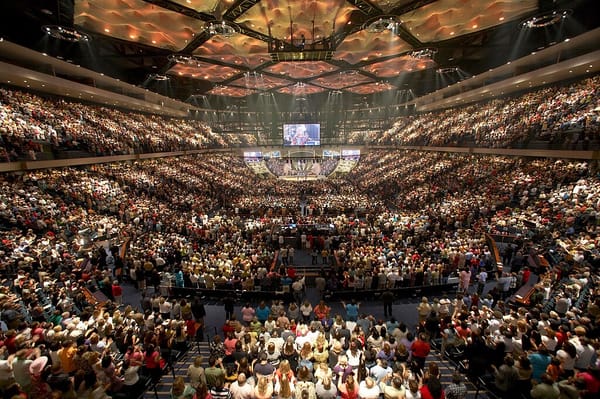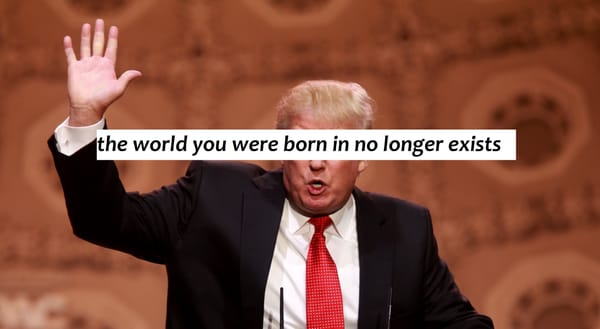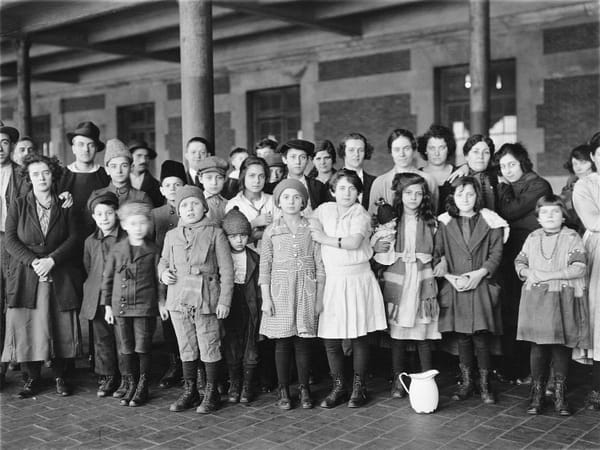Liberals and Nationalists: Compromise Without Reconciliation

If “populism” is the first word on everyone’s lips these days, “nationalism” isn’t far behind. To critics, the word seems to be little more than a synonym for prejudice. To Trump’s defenders, it is akin to pride in one’s community, and a belief in communal self-determination. Even conservatives critical of Trump are stepping up to defend nationalism’s good name. My argument here is twofold: that nationalism is a political reality that will have to be compromised with, and that liberal principles cannot be reconciled to nationalism as an ideal.
In Ramesh Ponnuru and Rich Lowry’s defense at National Review, they write that “Nationalist sentiments are natural,” going on to compare its place in politics with self-interest. But while the way we conceive of our self-interest may have changed over time, self-interest itself is an eternal feature of human nature. Nationalism, on the other hand, has existed for scarcely more than two centuries. This claim is not without its critics, but it is widely agreed upon among scholars of nationalism.
In Benedict Anderson’s classic formulation of nations as “imagined political communities,” nationalists are members of communities that are formed largely by strangers who will never meet but believe themselves to be part of the same “deep, horizontal comradeship.” Indeed, without this imagined and limited comradeship, the very idea of national interest suffers from fatal conceptual difficulties. Ponnuru and Lowry refer to the European Union as “a collection of disparate nations with disparate interests and traditions,” assuming rather than defending the idea that each nation has distinct interests which are more cohesive than the “disparate interests” of the groups within a nation’s borders. This is but one claim that a principled liberal cannot let stand uncontested.
Democratic compromise
But that contestation must occur within the confines of democratic politics. The willingness and aptitude for striking productive compromises is as important a facet of politics in a healthy democracy as partisan contestation. We must not allow ourselves to fall into the trap of thinking that Anderson’s “imagined” component of nationalism means that we can simply wish it away. As Jacob Levy aptly puts it:
[W]e need to take seriously the enduring power of group loyalty and attachment, and the durability of ethnic and cultural groups. Ethnocultural identities are strongly felt, and experienced by many people at many, perhaps most, times to be permanent and immutable.
Even if these identities are historically contingent and impermanent, there will always be some such identity that people are willing to defend and even die for. The “position that no accommodation can be made” for nationalism or any identity of its type “because it ought to be left behind has forgotten that ought implies can.” These identities are, by their nature, exclusionary. Even if the defenders of the free movement of people did not have to contend with nationalists and their reasons for closing borders, other ethnocultural groups would find reasons of their own and particular groups they would want to keep out.
It is not my intention to defend these reasons or the impulse to exclude. My point is simply that the existence of such groups is a fact and in a democracy, we ignore this fact at the peril of electoral defeat. Complacency during the moments of liberalism’s greatest triumphs frequently sows the seeds of its most terrible defeats. In terms of immigration alone, the biggest waves in the last century and a half have all been followed by the fiercest reactions. The first immigration restrictions were implemented at the turn of the 20th century after what was probably the biggest per capita wave of immigration in our history. There were signs of a reaction to the last big wave well before Trump became a contender for the highest office in the land. It’s easy to second guess in hindsight, but I believe compromises could have been made to mitigate this reaction. At minimum, we ought to be ready to deal in the future to avoid further empowering Trump and others like him.
Let us take the infamous travel ban that Trump began his presidency with. Had an actual immigration reform law been passed under Obama, circumstances might have been different. If Republicans’ constituents were screaming to restrict immigration from the Middle East and not take in Syrian refugees, Democrats could have given them something in order to get something greater. There are many millions of refugees in the world that are not from Syria, and there are many billions of desperately poor people who are not from the Middle East, and who would love to have a shot at a better life.
In exchange for restrictions that Republicans’ constituents want, Democrats could ask for looser restrictions on immigration from India and China—where over a third of the world’s population lives. Moreover, these terms need not be in proportion—at the bargaining table, Democrats ought to fight for the smallest possible tightening of restrictions on one side of the ledger, and the loosest they can get on the other. This requires, of course, that we elect Democrats who are both willing and capable of this kind of bargaining.
So much of this is in the marketing; Americans reacted dramatically to the Syrian crisis even though we weren’t even planning to take in many refugees to begin with. If Republicans reach a compromise that they have a political stake in, they can go to work selling whatever restriction Democrats were able to hold them to as more drastic than it actually is.
This is why the way that the undocumented immigration reform debate actually played out in 2014 was entirely counterproductive to liberal goals. Democrats flatly rejected a House GOP compromise bill that, while not ideal, would have been substantially better than the current status quo. They threatened to go with an executive order if the GOP did not swallow the Senate version, a threat Obama ultimately saw through. Obama challenged congress to “pass a bill” if they didn’t like it, when he and congressional Democrats bore their share of responsibility for failing to make a compromise happen.
We could have had a bill, which left undocumented immigrants less vulnerable to unilateral presidential action than they currently are. Instead, Obama gave us a small change that was completely reversible, and presented it in rhetoric designed to stoke up supporters and humiliate enemies. No one who favors meaningful reform that is likely to survive the short term shifts in political winds should thank him for it.
There’s no doubt that heightened divisions in congress have made compromises of these kinds harder to reach than they had been. But I believe that this is the basic approach liberals should take politically with nationalists and similar identity groups: we need to treat their presence as an empirical fact and strike what compromises we can, on the most favorable terms that we can get. But they should be compromises, so that these groups feel they’ve had their voice heard in the political proceedings and we don’t purchase a victory today at the price of losing it all in an election cycle or two.
Unreconciled ideals
But liberals are not and should not be nationalists. Though synthesis has frequently been sought, there is no version of nationalism that is compatible with liberal principles.
Here is Ponnuru and Lowry’s outline of a “benign nationalism”:
It includes loyalty to one’s country: a sense of belonging, allegiance, and gratitude to it. And this sense attaches to the country’s people and culture, not just to its political institutions and laws. Such nationalism includes solidarity with one’s countrymen, whose welfare comes before, albeit not to the complete exclusion of, that of foreigners. When this nationalism finds political expression, it supports a federal government that is jealous of its sovereignty, forthright and unapologetic about advancing its people’s interests, and mindful of the need for national cohesion.
Jacob Levy makes a liberal case against nationalism in his paper “Against Fraternity.” Here is his remark on “gratitude”:
Neither the United States nor Canada nor Sweden nor France is corporately responsible for the economic tide that has lifted them all over the course of centuries, and individual persons or firms do not benefit from that history qua Americans or Canadians, etc., but qua persons born in the portion of the whole world that was so lifted. This means that the members of any particular polity are not united even by a demarcated “society” to which they owe gratitude for the advantages to which they are born.
Ponnuru and Lowry probably have more in mind than merely gratitude for affluence, of course. And depending upon their manifestation, loyalty and a sense of belonging are benign and can bring meaning to people’s lives. But no version of liberalism is consistent with the idea that the welfare of one’s countrymen comes in principle before that of foreigners.
Ponnuru and Lowry advance the claim that nationalism is a natural relation like family or self-interest, but never defend it. Instead, they lean heavily on the aesthetics of nationalism:
A flyover or July Fourth fireworks display is not creedal. Neither is a Memorial Day parade, or laying a wreath at the Tomb of the Unknown Soldier. John Philip Sousa marches aren’t statements of ideals. Surely, the revulsion that most people feel when protesters burn an American flag is based on the belief not that the protesters are symbolically destroying an idea, but rather that they are disrespecting the nation to which they owe respect and fealty.
Further down they quote G. K. Chesterton:
Wherever there is a strangely-shaped mountain upon some lonely island, wherever there is a nameless kind of fruit growing in some obscure forest, patriotism insures that this shall not go into darkness without being remembered in a song.
I would never dismiss the importance of this sort of artistic and animating spirit. Part of our mission here at Liberal Currents is to defend a humanistic vision of liberalism. But something is peculiar here. Ponnuru and Lowry want nationalism to be a natural relation like the family, but the behavior they described is clearly acculturated. As they themselves point out, it has been imitated around the world.
That doesn’t make nationalism any less of a force in the world, of course. It does make it something that people have created, rather than something they are born with. The process of that creation is complex and bigger than any of us, but the end result is not destiny. Co-nationals are not like the family, or like friends, whose welfare we do naturally value above just anyone’s. If we value them above anyone’s, it is because we have been taught to, because our art and other cultural trappings have led us there.
But that’s just it—American culture most certainly does not do that, on the whole. Conservatives claim to be defenders of our culture against the “denationalizing” forces of liberalism, and yet in the same breath will denounce the messages behind America’s vast and globally influential cultural output. Whether it’s movies, television, comics, novels, or music, liberalism has an enormous footprint in American culture. And it has an enormous place in our national mythology. What better symbol for American culture is there than the Statue of Liberty who beckons the world to give her “your tired, your poor, your huddled masses yearning to breathe free.”?
Building an open and accepting liberal culture is not some cosmopolitan’s utopian dream. We have done it right here, in America, already. It was accomplished by people of principle, and it is a principle that liberals ought to demand from apologists for nationalism who assert, falsely, that it is simply a natural sentiment. Our current through American culture is just as real or natural as theirs, it simply isn’t the only one. And that is the greatest conceit of nationalist myths: that there is but one current, a Real America to stand opposed to those “denationalized” cosmopolitan elites. In fact America is a constellation, not a unity; a fact which, as mentioned above, creates irreparable problems for nationalist theories of the national interest.
So family and friendship are out as models for citizenship, but what about neighborliness? Ponnuru and Lowry turn to this next, quoting Roger Scruton on the nation as the expression of “the slowly forming agreement among neighbors both to grant each other space and to protect that space as common territory.”
This is both ahistorical (as nationalist mythologies inevitably are) and based around a sentimental notion of neighborliness at odds with the reality on the ground. In what is probably the most thorough study to date of American neighbor relations and the ideals implicit in them, Nancy Rosenblum decries the “impulse to borrow the luster of good neighbor for citizenship”.
The thought is that citizenship on the model of neighbor would illuminate our connections to one another and undergird more robust social justice. But neighbors’ commitments are voluntary and limited; our encounters do not aim at the provision of public goods; rough equality of reciprocity is not a homely application of justice. Neighborly give and take is a poor touchstone for shared sacrifice and solidarity. Neighbor relations, personal and individual as they are, do little to clarify and a lot to obscure the motives, interests, justifications, and decisions entailed by justice among strangers, which citizens are.
One also wonders what Ponnuru and Lowry’s personal experiences of neighbor life in America is like, that they would draw such thick communitarian metaphors from it. The average American moves more than 11 times in their life, 6 by the time they are 30. This is not the ideal situation for “slowly forming” anything, pseudo-social contract or otherwise. Rosenblum emphasizes that American neighbor relations are characterized personal encounters based purely on the coincidence of proximity, absent the structures of formal institutions.
Levy argues that our moral obligations to fellow citizens is more like what we owe strangers rather than what we owe family, so perhaps neighborliness is a viable model (though I doubt Ponnuru and Lowry had this vision of neighborliness in mind). Rosenblum notes this possibility:
Some conduct is adequately characterized in general moral terms that apply regardless of relation or proximity. The obligations neighbors have to warn of danger and to avoid acts of arrant cruelty, for example, are obligations in every setting; neighbors just have more occasion than others to look out for trouble and more occasion to make people nearby miserable.
But few roles are so shaped by formal institutions as that of citizen. In this way, neighbor and citizen are almost formal opposites to one another. A citizen of America is someone who owes taxes, can vote in elections, and has a whole laundry list of other duties and rights that are specified by legislation and the courts and enforced by police and other executive agencies.
Those formal institutions do bring more obligations than just what we would owe to any random stranger on Earth. Levy argues that citizens are “fellow travelers with a shared responsibility to the means of our travel, as fellow captives in a social world we did not make or choose, with a shared responsibility to its maintenance.” To elucidate this shared responsibility he does not turn to any liberal or radical, but to Augustine’s City of God.
Augustine holds that what the human polity offers is sufficiently valuable that Christians are called to civic participation and service, even as soldiers or judges who risk spilling innocent blood.
Political institutions are the means to peace and justice, means “we did not make or choose” but the currently available means nevertheless. As citizens, we are fellow travelers who owe it to each other to do our duty as judges, jury, soldiers, and elected officials.
But we do not owe each other solidarity or “allegiance”. These notions of citizenship make it difficult to conceptualize serious disagreement or dissent as anything other than a form of treason. As liberals, we do not owe it to Trump voters to conform to their projection of what Real America is, nor do we have to agree on what the risks of immigration and trade are or what level of risk is acceptable. We do not even have to respect them, except in as much as the basic human dignity of everyone deserves to be respected.
What we do owe them is recognition as participants in our shared political institutions. They have votes, and are free to act in concert to exert a pronounced influence on our politics. For that reason, our representatives ought to work with theirs. The democratic compromises I outlined in the previous section are necessary if we care at all about democracy itself, as liberals must. Nor should liberals worry about voting for representatives who deploy nationalist rhetoric while working towards liberal ends—that’s just another form of coalition building, another way of striking compromises among the “disparate interests and traditions” that make up our polity.




